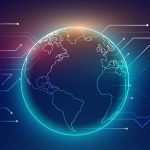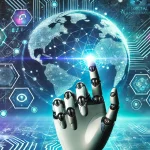Introduction
The influence of social media has reached far beyond entertainment, reshaping global politics and international relations. Platforms once meant for sharing photos and opinions have evolved into arenas for diplomacy, activism, and political power. In this digital ecosystem, artificial intelligence, celebrity voices, and government policies collide to define how the world communicates and decides its future.
As artificial intelligence personalizes feeds and amplifies messages, social media has become the world’s loudest political stage. From protests organized online to policies born from viral trends, the lines between governance and influence are fading, leaving both opportunity and risk for democracy.
The Rise of AI-Driven Political Messaging
Artificial intelligence now powers much of what people read, watch, and believe. Algorithms predict preferences and push political content tailored to each user, creating echo chambers that reinforce existing opinions.
Governments and political parties use this technology to analyze voter sentiment and craft targeted campaigns. While this allows for efficient communication, it also poses ethical concerns about manipulation and misinformation, raising questions about free will in the age of AI.
Celebrities as Global Political Catalysts
Celebrities today hold as much political sway as world leaders. Their social media platforms reach millions within minutes, turning personal opinions into global discussions. Figures like Angelina Jolie, Leonardo DiCaprio, and Beyoncé have influenced conversations on refugee rights, climate change, and social justice.
This trend signals a shift in how societies consume political discourse. When celebrities speak, they combine emotional storytelling with visibility, compelling audiences to care about issues that might otherwise go unnoticed.
The Role of Technology Companies in Governance
Tech giants like Meta, X, and Google are now gatekeepers of political communication. Their policies on censorship, data privacy, and misinformation determine what citizens around the world can see and share.
This unprecedented power has led to debates over digital governance. As governments pressure platforms to regulate content, the balance between free speech and social responsibility becomes more complex and contested.
Global Movements Born Online
The digital age has given rise to grassroots movements that transcend borders. From #MeToo to #BlackLivesMatter and climate strikes led by Greta Thunberg, online campaigns have inspired real-world action and legislative change.
Social media has become a tool for unity and awareness, connecting individuals across continents. Yet, these same networks can also spread hate speech and propaganda, showing that technology reflects both the best and worst of humanity.
AI Ethics and Political Accountability
The fusion of AI and politics demands new frameworks of accountability. As algorithms influence decisions and public sentiment, transparency becomes essential. Citizens deserve to know how data is collected, interpreted, and applied in shaping governance.
Without ethical oversight, technology risks becoming a tool of control rather than empowerment. The challenge for policymakers is to establish digital ethics that balance innovation with human rights.
The Future of Political Communication
The future of global politics lies in digital literacy and technological understanding. As younger generations grow up in an AI-driven world, they must learn to navigate political information critically.
Education and regulation will play central roles in defining this landscape. Governments, tech firms, and citizens must collaborate to ensure that technology serves democracy rather than undermines it.
FAQs
How is AI affecting political communication?
AI tailors political messages to users’ preferences, making campaigns more effective but also more manipulative.
Why are celebrities so influential in politics today?
Their global reach and public trust allow them to mobilize awareness and inspire collective action on key issues.
Can social media be considered a form of political power?
Yes, it shapes public opinion, mobilizes movements, and often influences government policy decisions.
What risks does AI pose to democracy?
AI-driven misinformation and bias threaten fair elections and informed decision-making.
How can societies protect against digital manipulation?
Stronger regulations, transparency in algorithms, and public education on media literacy are essential.
Conclusion
Social media and artificial intelligence have transformed politics into a global conversation driven by speed, emotion, and accessibility. Celebrity advocacy and online movements have added new dimensions to how people engage with governance and justice.
Yet, as influence becomes digital, responsibility must evolve with it. The future depends on balancing technology’s immense potential with the ethical duty to protect truth, fairness, and freedom in the world’s interconnected political landscape.




